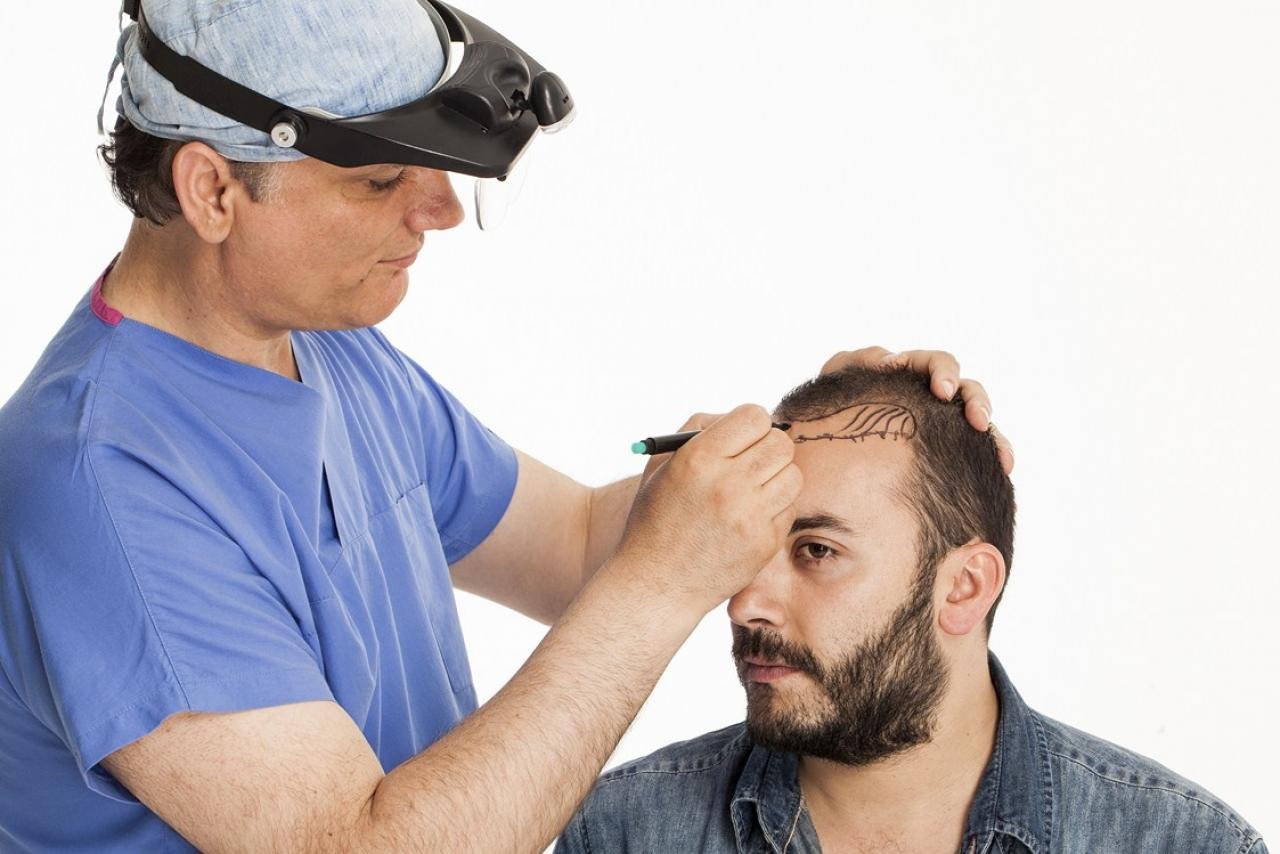Hair Transplant: Permanent Hair Restoration
Surgical hair restoration is an operation that takes hair from the back of the head and moves it to the area of hair loss. The fringe (back and sides) of hair on a balding scalp is known as donor dominant hair which is the hair that will continue to grow throughout the life of most men. The transplantation of this hair to a bald area does not change its ability to grow. Donor dominance is the scientific basis for the success of hair transplantation.
Hair restoration surgery has improved in leaps and bounds over the past decade. The days of the “plugs and corn rows” are gone and the age of follicular unit grafting has arrived. Through the use of the these natural hair grafts along with new and improved instrumentation, the accomplished hair transplantation surgeons can create a natural hair appearance that is appropriate for each individual patient. Follicular Unit grafts have the finest and softest appearance. They provide the critical soft hairline that is the transition to thicker hair. Reconstructing a new hairline is a skill requiring surgical as well as artistic skill. It is critically important to get it right the first time and thus requires considerable forethought and planning.
At Advanced Hair Restoration, first you will be prepped and given a local anesthetic. After your donor area is anesthetized we will then extract the follicles. Your physician marks the area to receive hair transplants and begins the process of transplanting each graft, one graft at a time.
The time the procedure will take will be determined by the number of grafts required. Your physician will schedule surgery time based on the number of grafts to be transplanted.
Many people return to work within a few days of their surgical hair restoration procedure.
Procedure Types
There are several types of procedures that can be used for permanent hair restoration. Below are the 2 main types. Learn more about both procedures here.
FUE
An automated FUE hair transplant is an evolved version of the manual FUE (follicular unit extraction) hair restoration procedure. An FUE procedure restores your personal hair that you simply grow, wash and cut by extracting and transplanting one hair follicle at a time throughout a one day outpatient procedure under local anesthesia. The FUE technique doesn't require using scalpels, and stitches/staples nor does it leave a permanent ear-to-ear, linear scar. Automated FUE technology provides a tool that experienced hair restoration surgeons and technicians can use to perform better and more effective work.
FUT - Linear Strip
The traditional “strip” method requires a section of the scalp to be removed from the back of the head. This technique has its place in the field but is becoming less popular due to the linear scar left behind. The wound created by strip is then stitched or stapled together. The FUT method sometimes allows for a slightly quicker process of removing a strip of tissue and then dissecting to the individual grafts, but leaves a linear scar. The implantation process is performed in the same manner in both the FUE and FUT process.




